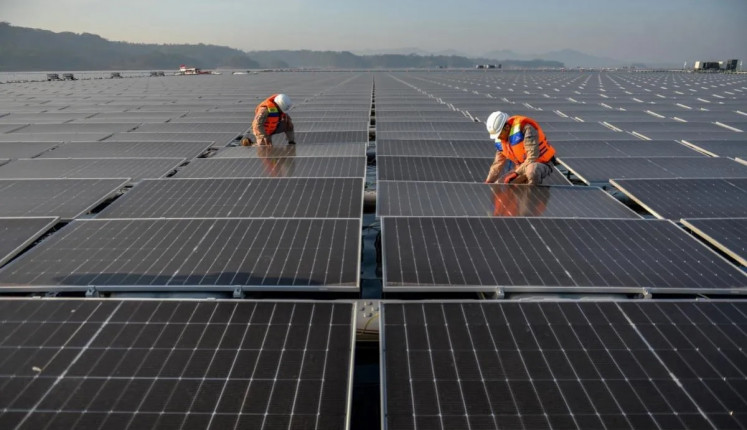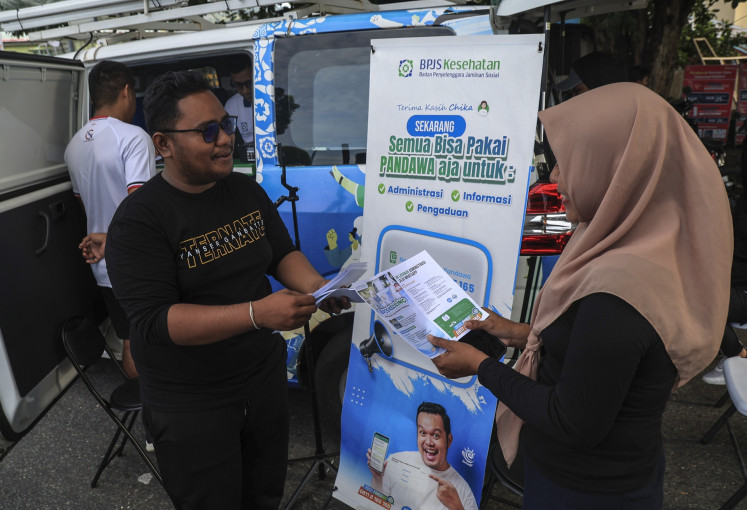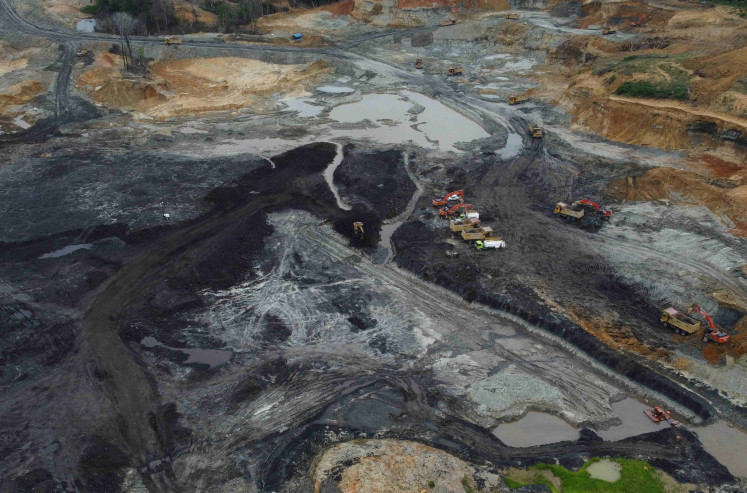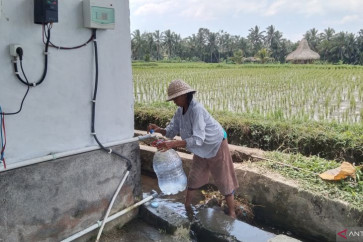Popular Reads
Top Results
Can't find what you're looking for?
View all search resultsPopular Reads
Top Results
Can't find what you're looking for?
View all search resultsJust transition should be part of national development planning
The country's just energy transition must not run counter to the agenda to accelerate growth and address socioeconomic problems facing the community.
Change text size
Gift Premium Articles
to Anyone
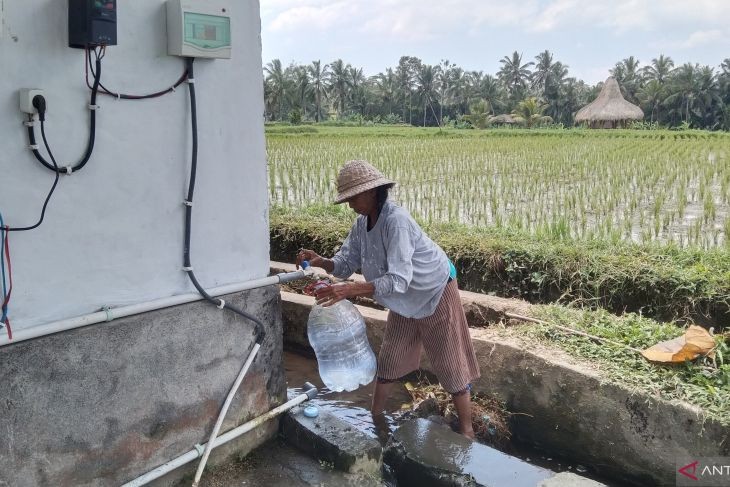 Clean energy: A farmer refills an empty water container on Sept. 2, 2023, with water from a community well in Keliki village, Gianyar regency, Bali. The well uses a pump that runs on energy from a solar power plant, which was provided by state oil and gas giant Pertamina to support Indonesia’s transition to clean energy. (Antara/Dewa Ketut Sudiarta Wiguna)
Clean energy: A farmer refills an empty water container on Sept. 2, 2023, with water from a community well in Keliki village, Gianyar regency, Bali. The well uses a pump that runs on energy from a solar power plant, which was provided by state oil and gas giant Pertamina to support Indonesia’s transition to clean energy. (Antara/Dewa Ketut Sudiarta Wiguna)
E
nergy transition has become an inevitable phenomenon around the world, including Indonesia. As one of the world's largest coal producers and greenhouse gas emitters, the country still relies on fossil fuels as the basis for the country's energy production, as well as export commodities.
The National Energy Council (DEN) has shown that the country still relies heavily on coal as its main source of primary energy, accounting for 42 percent, above 90 million tonnes of oil equivalent (MTOE), in 2022. According to the International Energy Agency (IEA), Indonesia remained the world's largest coal exporter as of 2023.
Regardless of its macroeconomic impact on the country, the coal industry faces issues. A recent study by the Institute for Essential Services Reform (IESR) on a just transition in Indonesia's coal-producing regions found that most of the coal-producing regions experience negative impacts from coal mining activities. These include health, socioeconomic and occupational safety issues in artisanal mining.
For example, there is a socioeconomic gap between migrant and indigenous communities living in these regions, leading to the unequal distribution of wealth, and more people with acute respiratory infections due to mining activities.
Another study by the Centre for Research on Energy and Clean Air (CREA) and the IESR shows that the operation of coal-fired power plants (CFPPs) also comes with many health impacts. The operation of CFPPs is estimated to cost the country Rp 175 trillion (US$11 billion) annually due to the direct health costs and health infrastructure facilities.
Knowing these facts, policymakers need to consider focusing on people-centered development planning in the energy transition agenda. Indonesia has been part of the Just Energy Transition Partnership (JETP) since 2022, and one of the key principles is to integrate the just transition framework into Indonesia's decarbonization efforts.
While the discussion on a just transition has mostly focused on phasing out coal and its impacts, this should be broadened. It should include, but not be limited to, addressing the injustices of the fossil fuel economic system and mitigating the potential socioeconomic impacts of the transition.





